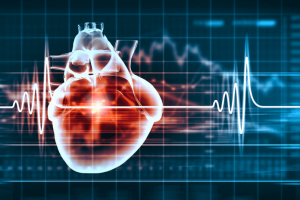Doctors and medical professionals are constantly looking for new ways to remotely track patient health that are both unobtrusive and accurate. In the case of those with cardiac irregularities, researchers at the University of Washington have developed a groundbreaking technology which allows for the contactless monitoring of heart rhythms.
This technology utilizes sonar by projecting a series of sounds through smart speakers, unheard by the human ear, which bounce off the chest wall of a subject sitting within two feet of the device. The inaudible sounds then feed back into the speaker, and the alterations in the returned sound are then fed into an AI algorithm that analyzes the results and identifies any irregularities in heart rhythms. This application can not only accurately detect heart rate and isolated movements, but also sense the inter-beat interval, which is the time in between two heartbeats.
The AI utilized is self-supervised, meaning that it analyzes information and makes assessments on the fly, as opposed to learning from data pools. In this case, that means that the system remains alert while engaged and analyzes information from multiple microphones to ensure that the information coming back is isolated and accurate. This is a similar mechanic as Amazon’s Alexa being able to hear an isolated voice saying “Hey Alexa” in a loud room.
This technology was tested on 50 participants, 26 of which were healthy, and 24 who were hospital patients with assorted cardiac conditions. The AI software was able to track 5,600 heartbeats among cardiac patients, with inter-beat intervals within 30 milliseconds of measurements obtained through standard monitoring modes. The results in healthy participants were able to be even more accurately measured.
The current technology is designed to allow singular checks in which people can get readings during virtual doctors’ appointments or when they sense a problem. Right now, this technology can also help with identifying and diagnosing heart problems at various stages of affliction. As it expands, however, this technology could be the key to monitoring heart activity in sleeping patients, as well as detecting sleep apnea.
Over a quarter of all American homes have access to smart speakers, meaning this technology already has the potential to reach millions of households with proper application. As these types of technologies develop, they ability to effectively and conveniently monitor patients will continue to improve access to quality care.























